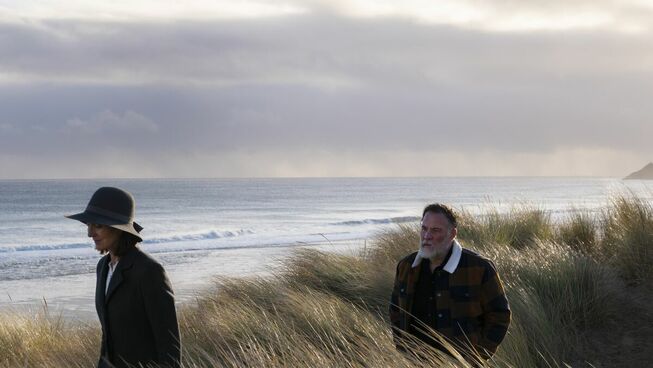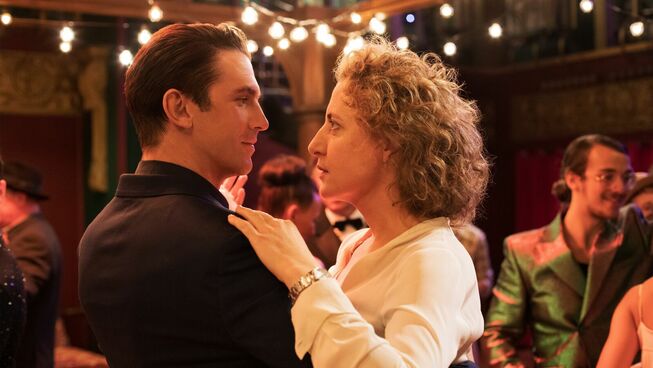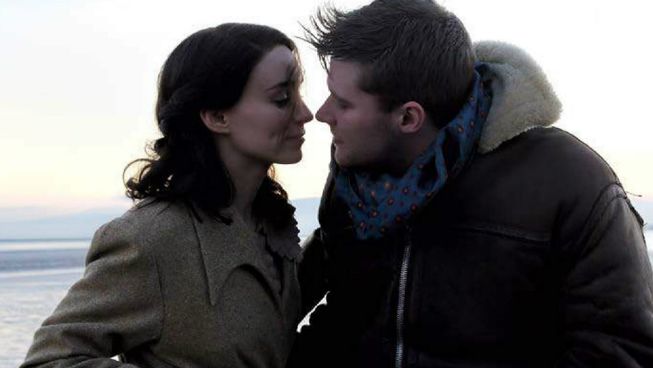
3.5 out of 5 stars
Throughout cinematic history, romance tends to be associated with the world's beautiful people. Not to say that the everyman characters do not get their opportunities to shine like Tom Hanks or Humphrey Bogart. Still, most celebrated romances tend to rely on the attractiveness of the lead characters. So when a film comes along that has a love story that involves two unsuspecting individuals, it should capture audiences' attention.
Belgian actor and director Bouli Lanners wanted to write ‘a love story about two ordinary people. People who are older, my age. People who are not particularly beautiful; people who don’t have perfect bodies. Just regular people. Because I think everybody can be loved and is capable of love, even when they are a bit older.’ Even though his lead actress is Game of Thrones’ Michelle Fairley, who is a beauty in her own way, he chose to depict both of his leads as simple town folk in a small Scottish community. He shows how two people can find love in the most unpretentious atmosphere and in less-than-ideal situations.
Lanners plays a labourer, Phil, who works for a prominent farmer in a small island town. One where the townspeople attend church every Sunday, while he chooses to walk the local coastline during his day off. Until one day, he is found on the beach after he had suffered a stroke that leaves him with temporary amnesia. Upon his return to the tight-knit community, Millie (Fairley) has been given the responsibility of caring for him as Phil acclimates back to life and tries to regain his memory. During this rehabilitation time, he discovers that he has been in a relationship with his carer before his medical incident. As they rekindle their love, Millie mysteriously wants them to keep it all a secret. This request from his love becomes harder as Phil asks more questions about their life together.
Cast against Scotland's beautiful and sullen setting, the Belgian director paints a compelling picture that is well worth the journey. His methodical style takes the concept of a ’slow-burn’ to new lengths and may frustrate some viewers. Yet, it proves worth the wait and the mysteriously tragic romance is currently unlike anything else in cinemas. By forcing the audience’s expectation to patiently endure, all things are made evident by the end, even if it might be bittersweet in its delivery. As an actor, he is an unassuming lead in this tale of love, but the connection between the couple is captivating. While not a typical romantic pathway, he captures the heartbreak and passion that runs through every love affair.
Reel Dialogue: Addressing death
Interestingly, from the opening church service through to the unsuspecting ending, death is a thread that is woven throughout this screenplay. Even though this weaves a darker aspect throughout this production, it does show how dying is a natural part of living. In his own way, Bouli Lanners shows how the end of life can represent sacrifice, change and transitions in humanity.
I have been crucified with Christ and I no longer live, but Christ lives in me. The life I now live in the body, I live by faith in the Son of God, who loved me and gave himself for me. - Galatians 2:20
The majority of the discussion within the film does focus on physical death. The Bible passages he incorporates into the story deal more with the spiritual side. A confronting element for some, but one worth considering as we age. How change can only occur if we die to our past and allow the new to take its place. This might be more philosophy than you would expect from a film review. Yet, this film conveys more than a lovely story, Nobody Has To Know will challenge your thinking on life, death and love.







